- Philadelphia Orchestra
- New Zealand Symphony Orchestra
- Imogen Holst
- Moses Asch
- Caius College Choir
- Francis Jackson
- Tom Collingwood
- Bernstein: Candide
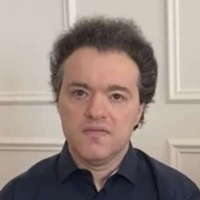 LISTENING TO TCHAIKOVSKY: Béla Hartmann uses his knowledge of Eastern Europe to argue against the banning of all Russian culture following Vladimir Putin's invasion of Ukraine.
LISTENING TO TCHAIKOVSKY: Béla Hartmann uses his knowledge of Eastern Europe to argue against the banning of all Russian culture following Vladimir Putin's invasion of Ukraine.
 DISCUSSION: What is a work? John Dante Prevedini leads a discussion about The performing artist as co-creator, including contributions from Halida Dinova, Yekaterina Lebedeva, Béla Hartmann, David Arditti and Stephen Francis Vasta.
DISCUSSION: What is a work? John Dante Prevedini leads a discussion about The performing artist as co-creator, including contributions from Halida Dinova, Yekaterina Lebedeva, Béla Hartmann, David Arditti and Stephen Francis Vasta.
Crushing Tragedy
RON BIERMAN has mixed feelings about San Diego Opera's production of Puccini's 'La bohème'
San Diego Opera celebrated the opening of its sixtieth season with Giacomo Puccini's La bohème, the same opera the company staged to open its first season. Its magnificent melodies, a touchingly tragic love story, and arias that are among the most beautiful ever written have made it one of the world's most performed operas for many years, an obvious choice for attracting audiences and donors.
The story begins in a bohemian Parisian garret where Rodolfo, a young writer, rooms with a painter, a musician and a philosopher. Money is scarce, and the only source of heat is a small stove. With no wood left to burn, Rodolfo begins to use pages from the manuscript of a play he's writing for what few moments of heat they can provide. When the flames die down a roommate comments, 'It opened and closed on the same night'.
San Diego Opera originally presented this production in a drive-in parking lot during the pandemic, the audience listening on their vehicle radios. For that performance, director Keturah Stickann cleverly overcame contagion challenges, including a fifteen-foot separation between singers, by setting the production a decade after the original libretto ends.
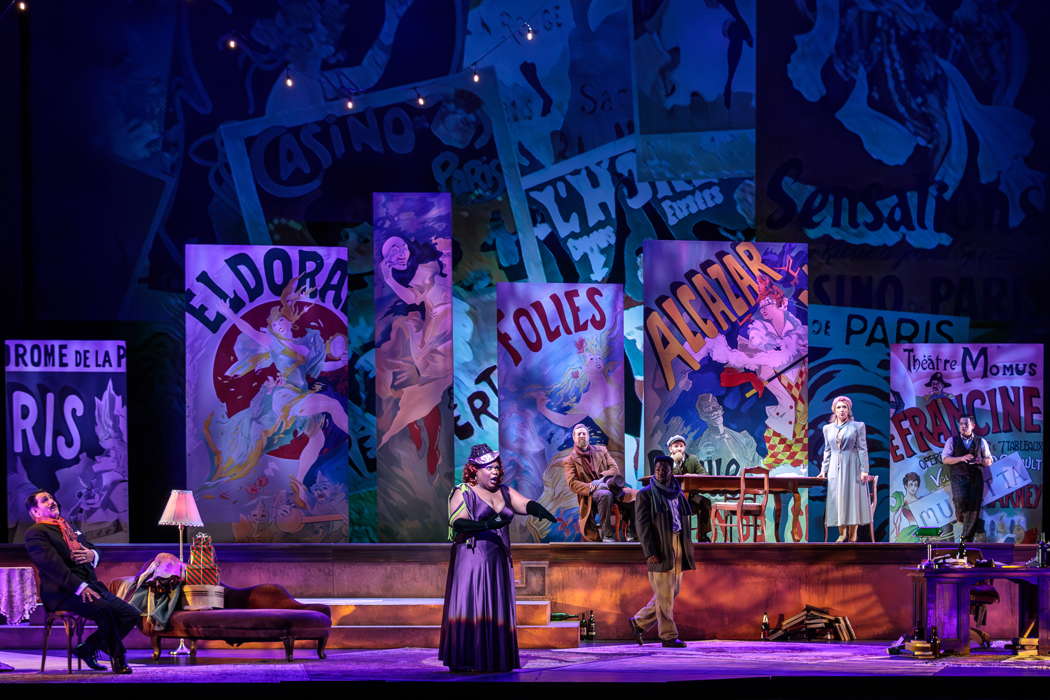
A scene from San Diego Opera's production of Puccini's La bohème.
Photo © 2024 Karli Cadel
Rather than a garret, Rodolfo (César Delgado) is in his study writing as he recalls his love affair with Mimì (Sarah Tucker). The creative concept compresses the four-act opera to about ninety minutes by eliminating three minor singing roles and a few crowded scenes with soldiers, children or other extras because of social distancing requirements.

César Delgado as Rodolfo in San Diego Opera's production of Puccini's La bohème. Photo © 2024 Karli Cadel
The revisions also removed most of the first act's humorous exchanges with the landlord out for his rent and the kidding banter among the starving artists. Without a crowded stage of noisy extras in the café, the second act loses its usual colorful commotion, strangely replaced in the current production by the Opera's chorus waving indiscernible flags while making noise in an unlit side aisle as though on a street near the café.
Turning the opera into pure tragedy imagined by a reminiscing Rodolfo worked when viewed from automobiles to avoid a virus that can cause the same lack of breath that dooms Mimì. In the Civic Center sans N95 mask, I was disappointed the company hadn't returned to the original libretto with tragedy made more compelling by the contrast with lighter moments.
That aside, the current production was well cast, there was a strikingly colorful background set in the effectively lit second act, and the closing scene of Mimì's death was convincing and touching.
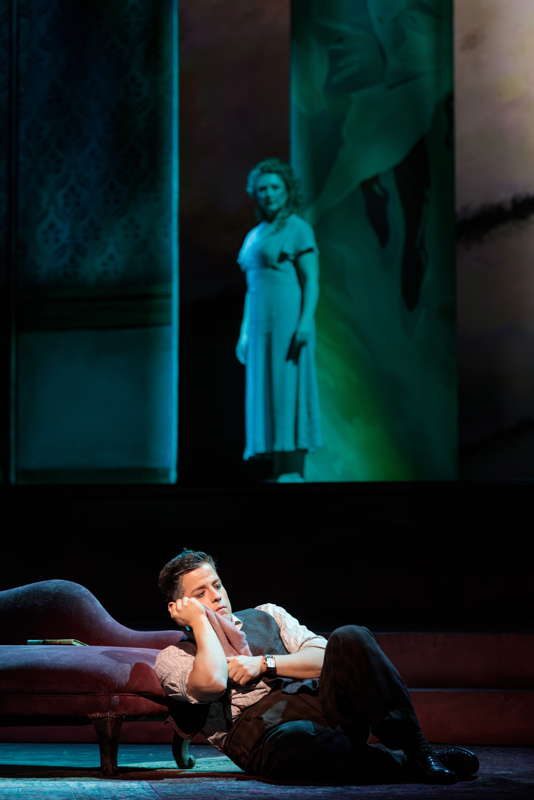
César Delgado as Rodolfo with, above,
an image of Sarah Tucker as Mimì.
Photo © 2024 Karli Cadel
Latonia Moore dominated the second act as Musetta. Her unusually strong, yet musical voice made her a success as Aida in San Diego and at the Met. How readily she changed from tragic Queen to bawdy nightclub singer may have surprised many in the audience. She played the role with uninhibited comedic flair, while still doing justice to the well-known 'Musetta's Waltz' in which she confidently praises her own seductive power.
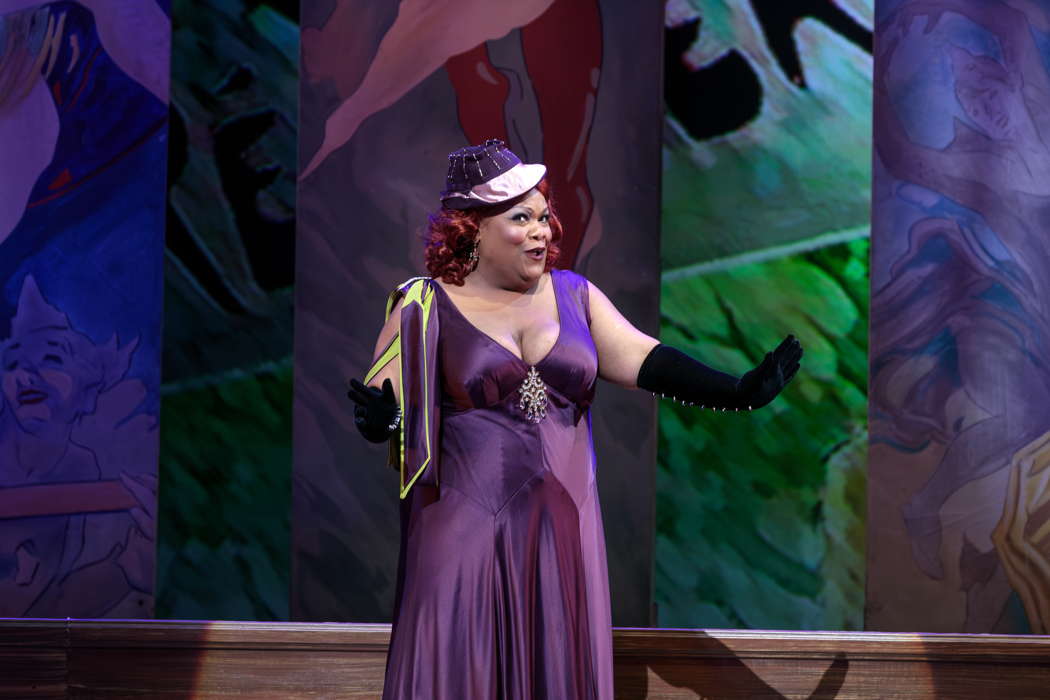
Latonia Moore as Musetta. Photo © 2024 Karli Cadel
The lighter moments were welcome in the otherwise crushing tragedy of this version of the opera.
As Rodolfo visualizes Mimì, she is barefoot in pale makeup, her face expressionless. A grayish dress and careful lighting make her ghost-like. Rodolfo reaches out, but they can only touch in memory.
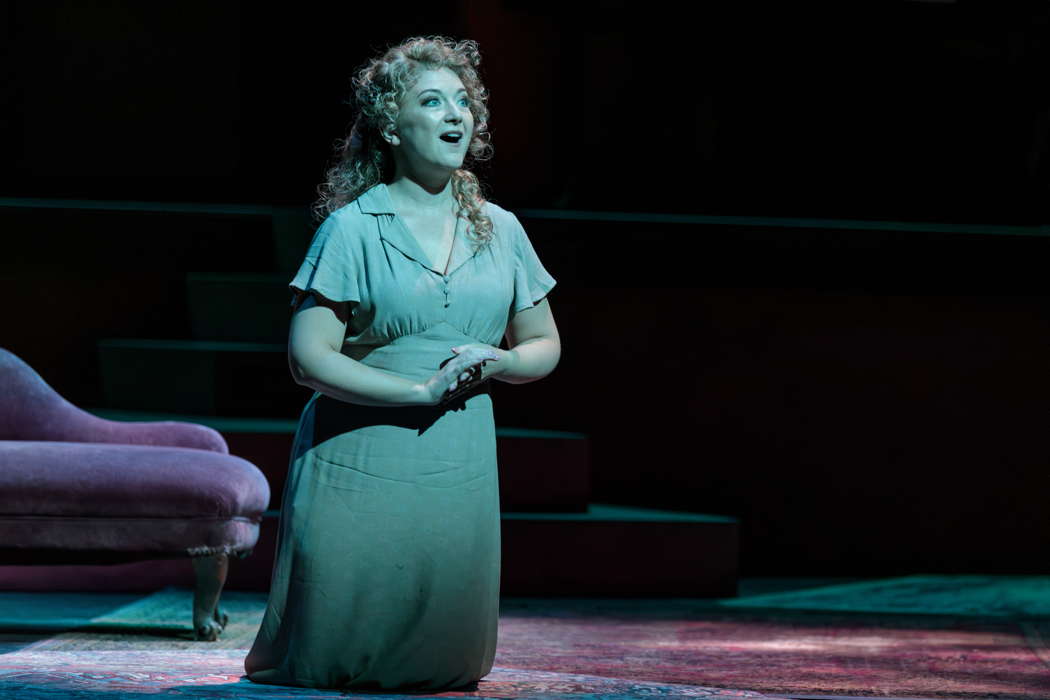
Sarah Tucker as Mimì. Photo © 2024 Karli Cadel
Sarah Tucker seemed a natural for the role, poignantly convincing with a lovely soft voice, its higher-register notes firm and perfect as Mimì recalls the past while dying in the final scene.
Delgado's anguish seemed equally real. He has a warmly attractive tenor voice, but in earlier scenes the San Diego Symphony led by Lidiya Yankovskaya at times seemed carried away by Puccini's melodies, at its best for the beauty of its sound, but overpowering Delgado's and other voices.
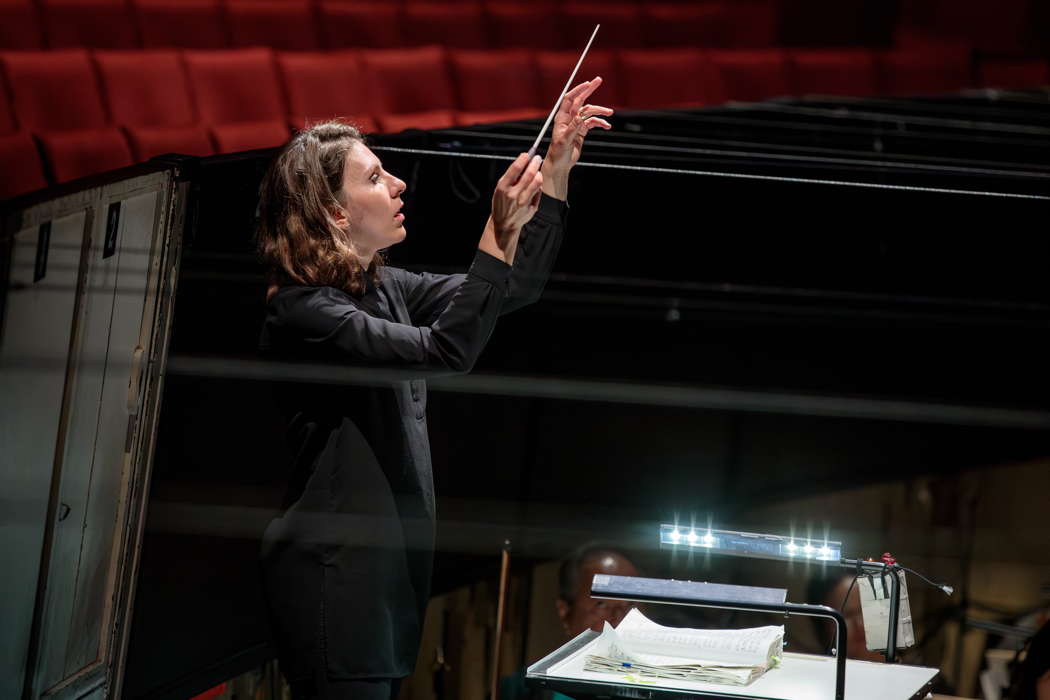
Lidiya Yankovskaya conducting the San Diego Symphony Orchestra.
Photo © 2024 Karli Cadel
Leroy Davis as the painter Marcello acted with pleasing, light-hearted confidence in his early exchanges with Rodolfo. Bass Harold Wilson as the philosopher Colline was a pleasure to hear when he bid a mock-serious adieu to the overcoat he is selling to help pay for Mimì's doctor. The other secondary roles of the musician Schaunard (Søren Pedersen) and Alcindor (Michael Sokol) were also effectively sung and acted.
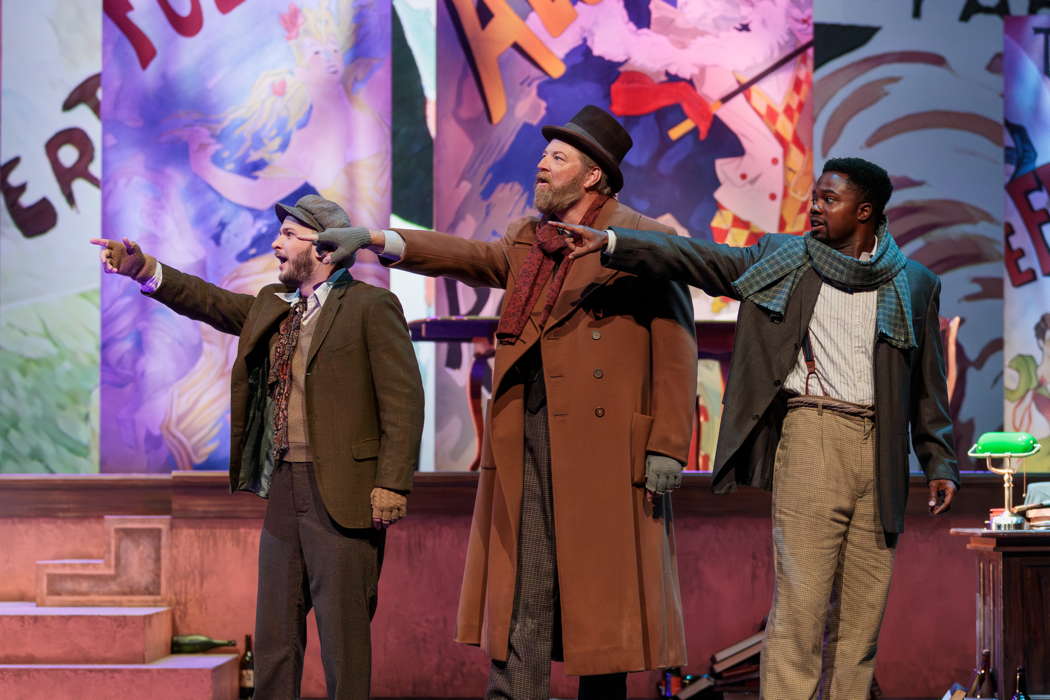
From left to right: Søren Pedersen as Schaunard, Harold Wilson as Colline and Leroy Davis as Marcello. Photo © 2024 Karli Cadel
San Diego Opera's three mainstage productions this season are being presented in a single weekend rather than the usual two. The most difficult roles such as those of Rodolfo and Mimì in La bohème were double casted to give voices a rest between performances. The concert I attended was the only performance with César Delgado and Sarah Tucker.
Copyright © 7 November 2024
Ron Bierman,
San Diego, USA



